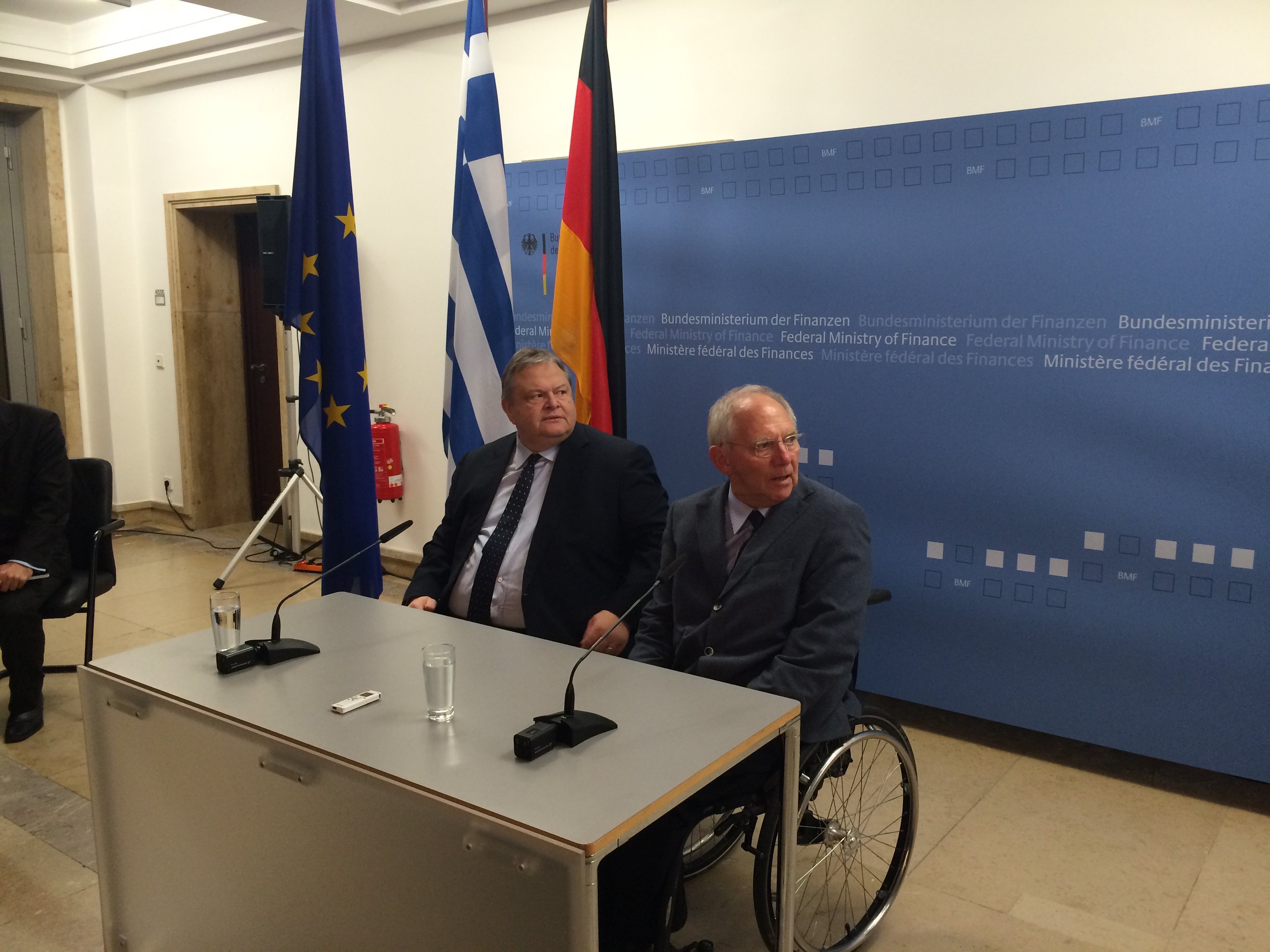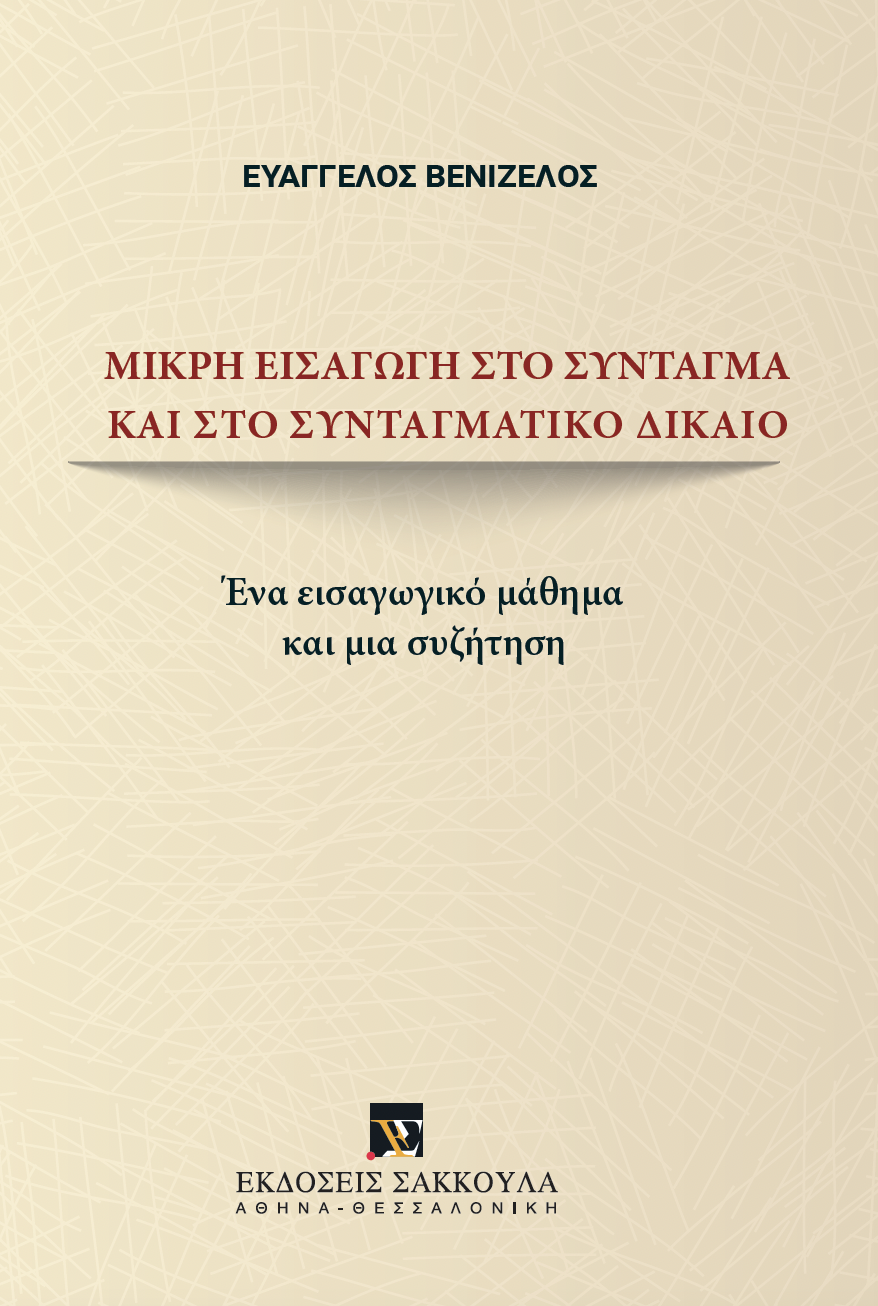
January 12, 2026
Evangelos Venizelos
Article published in Kathimerini
International law or Realpolitik?
International law or Realpolitik? The dilemmas of Greek foreign policy in a ‘threateningly hyper-mobile’ international conjuncture
Invoking international law and declaring respect for it constitutes one of the critical parameters of the foreign policy of a medium-sized Western country, a member of the European Union and NATO, such as Greece – especially a country that faces a particular national security problem extending beyond the European and NATO frameworks. Yet such a declaration does not in itself amount to a comprehensive national strategy or a coherent national security doctrine.
The elements that compose national power and shape the balance of forces are obviously far more numerous than international law alone. The recourse to international law in Greek official – and more broadly public – discourse over the past half-century, rooted in the founding trauma of the Metapolitefsi in relation to Cyprus, is not made merely or primarily for idealistic or axiological reasons, but because it is widely believed to protect the national interest: both Greece’s sovereignty, territorial integrity and sovereign rights, and the prospect that the real situation in Cyprus might be altered and a solution agreed closer to the model of a bi-communal, bi-zonal federation.

19.6.2025
Evangelos Venizelos
Emeritus Professor of Constitutional Law at the Law School of Aristotle University of Thessaloniki, former Deputy Prime Minister, former Minister—among others—of Foreign Affairs, Finance, and National Defence, and General Rapporteur for the 2001 constitutional revision.
Published: Academia & SSRN [PDF]
The Greek Constitution at Fifty:
Continuity, Resilience, and European integration
1. The Anniversary and Its Significance
We are celebrating this year the fiftieth anniversary of the 1975 Greek Constitution[1] (the Constitution of the Hellenic Republic), which was voted on June 7, published on June 9, and entered into force on June 11, 1975. The next day, the then Prime Minister Konstantinos Karamanlis submitted Greece’s application for accession to what was then the European Communities. The country’s participation in the European integration process [2] was one of the fundamental constitutional decisions of the early post-dictatorship phase, even though it is not explicitly mentioned in the core, non-revisable provisions of Article 110 paragraph 1. This became an explicit constitutional rule in 2001, with the addition of a corresponding interpretative declaration in Article 28 of the Constitution.

27 April 2025
Evangelos Venizelos *
The Pope as a Man of Flesh: From Hope to Resurrection
A few months ago, Pope Francis’ autobiography was published. The most important theological message he intended to convey does not emerge from the theological-essayistic part of the book, but from the factual narrative — from the telling of the life of a man of flesh. In this book, Pope Francis appears as an ordinary human being. After all, incarnation is the great miracle. And Pope Francis emphasizes this in every possible way.
First, because he wants to sum up an ecclesiology for the Catholic Church. He tells us that he perceives the Church as the People of God. Christ exists within the body of His people (Corpus Mysticum).He wishes for the clergy — and himself — to bear the scent of ordinary people. The Church’s fragrance is the smell of simple and poor people (“Do not fear contact with the world”).He admires the priests serving in slums, prisons, and amidst the misery of the world — from which emerges Misericordia, mercy, a central concept for Pope Francis.

April 26, 2025
Evangelos Venizelos *
What is Happening in the West?
Let us conventionally define “the West” as the domain shaped by the synthesis of liberal democracy, a capitalist economy supplemented by greater or lesser degrees of welfare state, continuous technological innovation, a shared sense of security—and thus a common perception of threat from various versions of “the East”—and the legacy of modernity, with all that precedes or follows it historically. This last dimension encompasses the historical relationship with Christendom, the cultural and moral substratum, prevailing mentalities, and the manner in which history and the concept of progress are understood. The West, ultimately, represents both a way and a standard of life, existing along a spectrum within which there are significant internal differences, but all of which are mutually recognized as Western.
The West is, therefore, a historical, cultural, normative, institutional, economic, and geopolitical entity. Its geographical locus places it in Europe and North America, but it also branches out beyond the Euro-American sphere, even where not all its constitutive elements are fully present. According to this typology, the West is grounded in a system of shared assumptions and taken-for-granteds, in an almost automated sense of solidarity, and in a common view of the international order and its organization through international institutions and the norms of international law in the fields of politics (primarily the UN and regional bodies such as the Council of Europe or the OSCE), economics (WTO, IMF, World Bank, OECD, etc.), and defense (primarily NATO).

July 24, 2024
Evangelos Venizelos
Article published in Kathimerini
The 50th anniversary of the Metapolitefsi – the transition from dictatorship to democracy in 1974 and the period since – necessitates a rethinking of our relationship with historical time. In fact, the polysemous Metapolitefsi itself challenges our calculation of historical time, in each and every version of it: the Metapolitefsi as an event and a state, a transition and a time period. First, it is Greece’s way of entering the second half of the “short” 20th century, which for us occurred with a long delay, almost 30 years after the end of World War II and only 15 years before the end of the Cold War, the collapse of “actually existing socialism” and the beginning of the storm of challenges of the postmodern era. It is also a common starting point that allows us to walk in parallel and compare ourselves as a country with other countries of the European South (and not the Balkans), Spain and Portugal, which emerged almost simultaneously from dictatorships of a different nature and of much longer duration, but dictatorships nonetheless. Therefore, we had a common challenge ahead: the establishment of democratic constitutions, participation in European integration, integration with the West, economic development as well as institutional, social and financial modernization. In this respect, it is no coincidence that we shared the experience of the economic crisis within the eurozone with these countries, albeit with crucial differences.

April 22, 2024
Evangelos Venizelos
Article published in tovima.com
The Importance of the 2012 Debt Restructuring. The Contribution of Charles Dallara
The restructuring of the Greek sovereign debt that took place in 2011-2012 is still relevant, critical and active. International financial institutions and markets consider our debt to be sustainable, and the – drastically reduced after 2012 – annual debt service costs, which are only comprised of interest and no amortisation until 2032 due to the grace period make it feasible to meet the annual targets in terms of both fiscal and primary deficit/surplus. This demands the necessary fiscal awareness and sufficient domestic political will, though.
The complex operation that led to the restructuring of the Greek sovereign debt certainly continues to arouse international interest and hopefully domestic interest will be maintained or rekindled, primarily for national security reasons, since fiscal stability is a critical parameter of national power.

January 3, 2014
Evangelos Venizelos
Article published in tovima.com
Wolfgang Schäuble as a Mirror
When I assumed my duties as Deputy Prime Minister and Finance Minister on 16 June 2011, the first adjustment programme of the Greek economy had proved to be inadequate and what was urgently needed was a second programme entailing a much larger loan, along with a bold reduction and radical restructuring of the Greek public debt, in order to render it sustainable in the long term.
I met Wolfgang Schäuble just two days later, at the Eurogroup meeting in Luxembourg. On the first days of July (6.7.2011), our first, decisive bilateral meeting took place in Berlin, attended by one partner from each side, Jörg Asmussen and George Zanias. There we agreed on the framework within which we would operate, so that the Eurogroup and the European Council could decide on the second programme and, above all, so that the Eurozone would follow the logic behind haircuts and restructuring of the public debt of its member states, contrary to the provisions of primary EU law (TFEU) and the fundamental assumptions of our institutional partners.

December 29, 2023
Evangelos Venizelos
Article published in Kathimerini
Without Wolfgang Schaeuble’s strong political presence, it is doubtful that the eurozone would have been able to face the monumental challenge of an economic crisis within its own borders and, above all, cope with the Greek crisis by taking initiatives that went beyond the narrow framework of the Treaties and required the allocation of hefty funds. Staying committed to fiscal discipline and the strict regulatory framework of the Stability Pact, Wolfgang Schaeuble expressed the dominant view during the crisis period which called for Greece to make a clear choice between staying in the eurozone – receiving robust aid and being subjected to harrowing fiscal and structural adjustment measures – and abandoning the euro, with all that such a move would entail for Greece (and the eurozone as a whole). When Greece ratified at different times and under different governments the national strategic choice of retaining the euro and essentially staying in the EU, Wolfgang Schaeuble was the predominant supporter of the 2012 Greek sovereign debt restructuring, which has been the basis of the country’s course ever since. Fortunately, this choice was ratified – albeit at an increased cost – in the summer of 2015 after and despite the whirl of the referendum.

January 25, 2023
Evangelos Venizelos
Article published in Kathimerini
Modern liberal democracy can easily become phobic, but is hesitant to act as a militant democracy. It is anxious and fearful about election results in several Western countries – e.g. the recent congressional midterm elections – where the choices of the electorate may call into question the very values of liberal democracy. On the other hand, as a militant democracy, it must respect constitutional legitimacy and democratic pluralism.
Engels recalls the notorious phrase uttered in 1849 by Odilon Barrot, head of the council of ministers under President Louis-Napoleon Bonaparte, when addressing the French National Assembly: “La legalite nous tue.” Legality kills us. Transposing this phrase to the present context, we can say that it raises the question of the difficult balance between democratic fear and constitutional defense.

Committee on Political Affairs and Democracy, Parliamentary Assembly, Council of Europe
Georgioupolis, Chania, Crete, 16.5.2022
Evangelos Venizelos,
The asymmetries of European security and the need for a renewed multilateralism after the war in Ukraine
1. European security is governed by deep historical asymmetries. The new challenges associated with the Russian military invasion and the war in Ukraine highlight the asymmetries that can no longer be hidden behind a rhetoric that embellishes problems and postpones difficult decisions.
Already since the last phase of WWI, during the President Wilson era, European security has become a common Euro-American problem. The participation of the USA and the so-called new world in general in the great European war became necessary in order for it to come to an end with the defeat of the so-called Central Powers.
American involvement was necessary for the defeat of Nazism in WWII. During the long period of the Cold War, the American presence in Europe was a basic condition for nuclear balance and therefore security.














